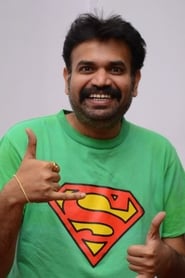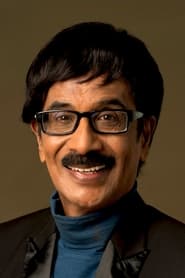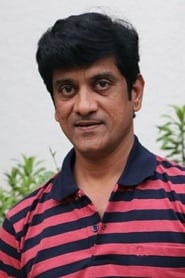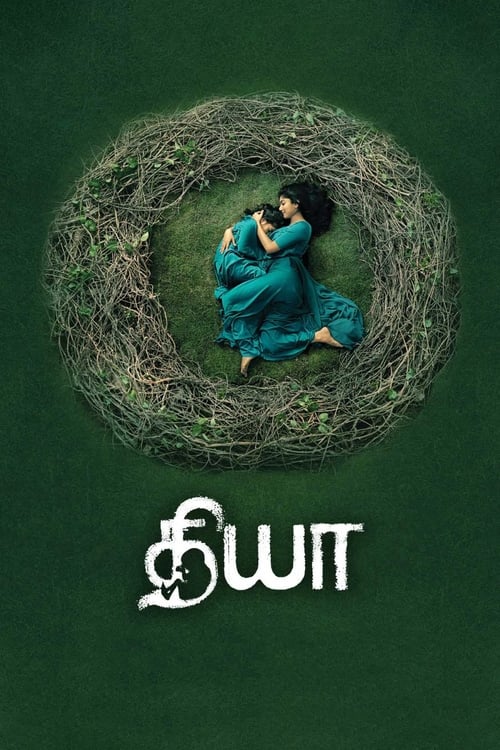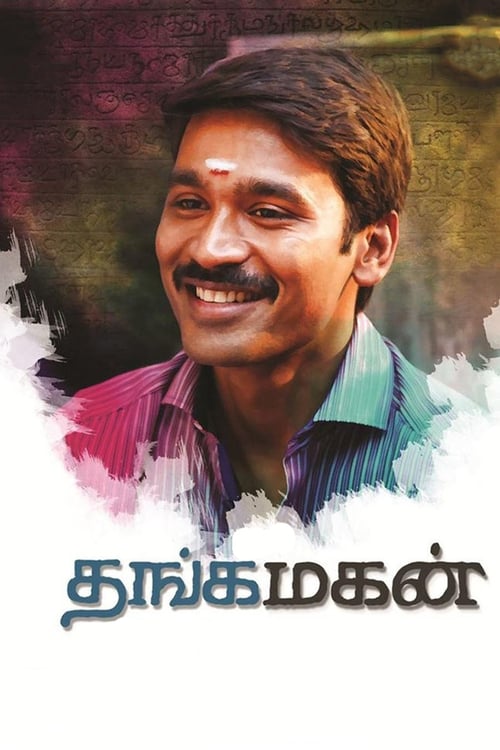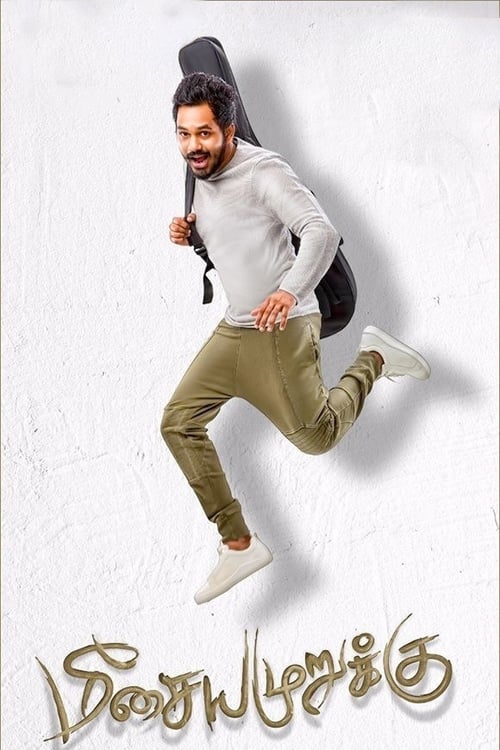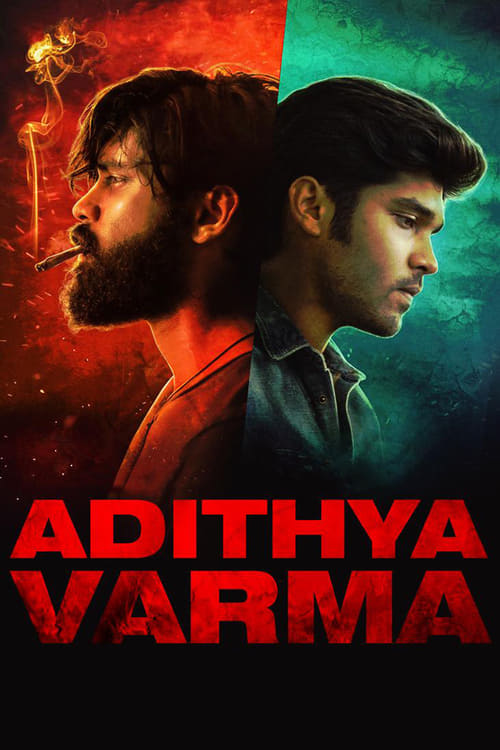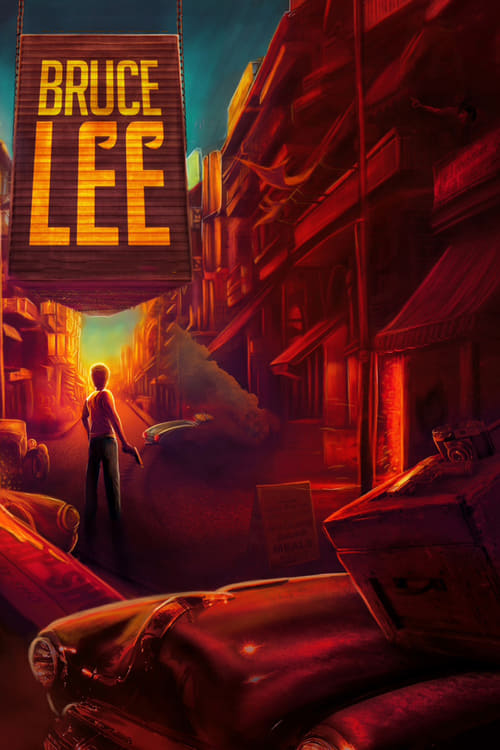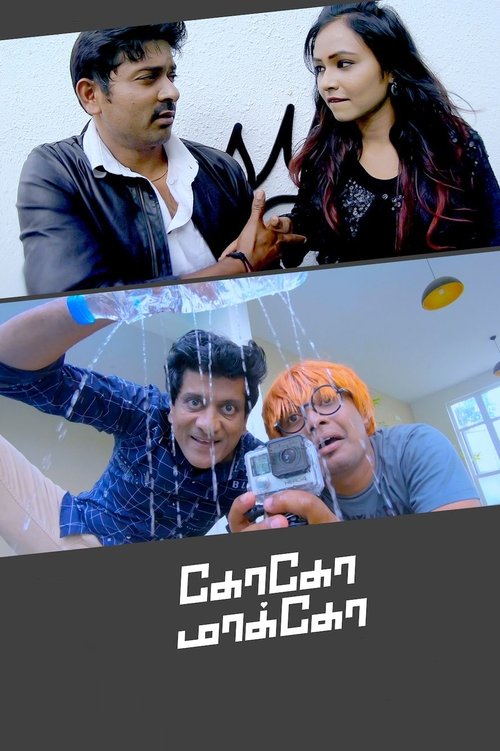
Ask Your Own Question
What is the plot?
The sun rises over a bustling neighborhood in Chennai, casting long shadows across the rooftops of a modest apartment complex. Inside one of the units, the air hums with the crackle of electricity and the faint scent of burnt wires. Shiva (Premgi Amaren), a wiry, wide-eyed man with a mop of unruly hair, stands hunched over a cluttered workbench, his fingers darting between wires, beakers, and a half-assembled rocket prototype. His apartment is a chaotic symphony of scientific ambition--books on physics and chemistry spill from shelves, blueprints are pinned to the walls, and the floor is littered with tools and failed experiments. He mutters to himself, "If I can just get this right, I'll save the world!" His voice is tinged with both desperation and hope, a man chasing a dream that seems just out of reach.
Across the hall, Joshita (Advaitha) waters a small potted plant on her balcony, her gaze drifting to Shiva's window. She watches as a small explosion sends a puff of smoke into the air, followed by Shiva's frustrated groan. She calls out, "Shiva, you're going to blow up the whole building one day!" Her tone is playful, but there's a flicker of genuine concern in her eyes. Shiva waves at her, grinning sheepishly, and she can't help but smile back. Their friendship, forged in childhood, is a constant in the chaos of his life.
Inside Shiva's apartment, his mother, Alamu (Leema Babu), enters with a basket of laundry. She surveys the mess with a sigh. "When will you stop these foolish experiments and get a proper job?" she asks, her voice a mix of exasperation and affection. Shiva shrugs, already absorbed in his work. "Ma, this is my job. I'm going to send a rocket to cement the hole in the ozone layer. The world needs me." Alamu shakes her head, muttering about "mad scientists" as she leaves, but there's a softness in her eyes that betrays her pride.
Later that morning, Nambirajan (Ilavarasu), the building's landlord, knocks on Shiva's door. He's a stern man with a no-nonsense demeanor, his clipboard in hand. "Rent's due, Shiva," he says, stepping inside and wrinkling his nose at the smell of chemicals. "And I've had complaints about the noise. Last night's explosion woke up half the building." Shiva tries to explain, but Nambirajan cuts him off. "If this keeps up, I'll have to evict you. You're a menace to the community." Shiva promises to be more careful, but Nambirajan leaves with a skeptical look, muttering about "unstable tenants."
The building's common area becomes a stage for the community's growing frustration. Rengasamy Nagarajan (Manobala), a grumpy neighbor, confronts Shiva about the latest mishap. "You're going to get someone killed with your crazy experiments!" he shouts, his face red with anger. Shiva tries to defend himself, but the argument escalates, drawing a crowd of neighbors. Petthiah (T. P. Gajendran), an elderly resident, shares stories of past disasters, while Thennavan adds his own complaints. The tension is palpable, a simmering pot ready to boil over.
Meanwhile, Samyuktha (Rekha) watches from the shadows. She's a mysterious woman who recently moved into the building, her apartment kept private and her activities unknown. She observes Shiva with a curious intensity, her eyes following his every move. There's something about him that intrigues her, something she can't quite put her finger on.
Shiva's experiments continue, each one more ambitious than the last. He buys materials from the local market, where vendors eye him warily, knowing his reputation for causing minor fires and explosions. He returns to his apartment, his arms laden with chemicals and equipment, determined to make his rocket work. Joshita visits often, bringing food and offering words of encouragement. "You're not crazy, Shiva," she says one evening, sitting beside him as he tinkers with his latest prototype. "You're just… different. And that's not a bad thing." Shiva smiles, grateful for her support.
One afternoon, Kalakkal (Chaams), a local troublemaker, confronts Shiva in the building's common area. "You caused a fire in the stairwell last week," he accuses, his voice loud and aggressive. Shiva tries to explain, but Kalakkal shoves him, and a brief scuffle ensues. The neighbors rush to break it up, but the tension lingers, a reminder of the fragile peace in the building.
Samyuktha's curiosity about Shiva grows. She begins to observe him more closely, noting the intensity of his focus and the passion in his eyes. One evening, she approaches him in the common area. "Why do you do this?" she asks, her voice calm but probing. Shiva hesitates, then shares a piece of his past. "When I was a child, my father died in a fire. I couldn't save him. I've been trying to save the world ever since." Samyuktha listens intently, her expression unreadable. "You're not alone, Shiva," she says softly. "But you need to be careful. Your experiments could have unintended consequences."
As the days pass, Shiva's experiments become more reckless. He works late into the night, fueled by a mix of caffeine and desperation. Joshita grows increasingly worried, but she stands by him, her affection for him deepening. "I admire your passion, Shiva," she confesses one evening. "Even if your methods are unorthodox." Shiva looks at her, touched by her words. "You're the only one who understands me," he says, his voice filled with emotion.
The tension in the building reaches a boiling point. Nambirajan calls a community meeting, where the neighbors voice their concerns. "We can't live like this," Rengasamy Nagarajan declares. "Shiva's experiments are a danger to us all." Shiva listens, his heart heavy with guilt. "I'm sorry," he says, his voice trembling. "I didn't mean to cause so much trouble. I just want to make a difference." The neighbors exchange skeptical glances, but Joshita steps forward. "Give him a chance," she pleads. "He's not a bad person. He just needs support."
The meeting ends with a fragile truce, but the underlying tension remains. Shiva vows to be more responsible, but his ambition is hard to contain. He begins to work on a new, safer project, but the lure of his rocket is too strong. He spends his days and nights perfecting his design, determined to make it work.
One morning, Samyuktha confronts Shiva in his apartment. "I know what you're planning," she says, her voice firm. "And I can't let you do it. Your experiments could have catastrophic consequences." Shiva is taken aback. "Who are you?" he asks, his voice filled with suspicion. Samyuktha hesitates, then reveals her true identity. "I'm a government agent," she says. "I've been monitoring your activities. Your experiments could have unintended effects on the environment. I'm here to prevent any major disasters."
Shiva is stunned, but he listens as Samyuktha explains the potential dangers of his work. "You have a gift, Shiva," she says. "But you need to use it responsibly. There are safer ways to make a difference." Shiva nods, his mind racing with the implications of her words.
The day of Shiva and Joshita's wedding arrives. The building is decorated with flowers and lights, a rare moment of joy in the midst of chaos. Shiva, dressed in a simple white shirt and dhoti, stands at the altar, his heart pounding with anticipation. Joshita, radiant in a traditional saree, joins him, her eyes filled with love and hope.
But Shiva can't resist one last experiment. He decides to launch his rocket as a grand gesture, a symbol of his dreams and ambitions. The neighbors gather outside, their faces a mix of excitement and apprehension. Shiva counts down, his voice trembling with emotion. "Three… two… one… launch!"
The rocket ignites, shooting into the sky with a roar. For a moment, it seems to work, but then it veers off course, crashing into the building with a deafening explosion. The neighbors scream, scattering in panic. Shiva stands frozen, his heart sinking as he realizes the consequences of his actions.
Samyuktha rushes to the scene, her face filled with concern. "Shiva, are you okay?" she asks, helping him to his feet. Shiva nods, his eyes filled with guilt. "I'm sorry," he says, his voice barely a whisper. "I didn't mean to cause so much damage."
Samyuktha places a hand on his shoulder. "You have a gift, Shiva," she says. "But you need to use it responsibly. There are safer ways to make a difference." Shiva looks at her, then at Joshita, who stands beside him, her eyes filled with love and understanding.
The neighbors gather around, their anger replaced with concern. Shiva apologizes for the chaos he has caused, promising to be more responsible in the future. Joshita supports him, encouraging him to continue his scientific work but in a safer manner. "You're not alone, Shiva," she says, her voice filled with love. "We're here for you."
The film ends with Shiva and Joshita getting married in a simple ceremony, surrounded by their neighbors. Shiva's rocket is dismantled, and he begins working on a new, safer project. The final shot shows Shiva and Joshita planting a tree together, symbolizing growth, stability, and a new beginning. The sun sets over the neighborhood, casting a warm glow on the faces of the community, a reminder that even in the midst of chaos, there is hope for a better future.
What is the ending?
In the ending of "Maanga," the protagonist, a young man named Karthik, confronts the antagonist, a powerful local politician. After a series of intense confrontations and emotional turmoil, Karthik ultimately prevails, leading to a resolution that brings peace to his community. The film concludes with Karthik finding a sense of purpose and belonging, while the antagonist faces the consequences of his actions.
As the climax of "Maanga" unfolds, the tension in the air is palpable. Karthik, having gathered the courage to stand against the corrupt politician, prepares for a final confrontation. The scene is set in a dimly lit warehouse, where the politician has gathered his henchmen, their faces shadowed and menacing. Karthik enters, his heart racing, determination etched on his face. He knows that this is not just a fight for himself but for the entire community that has suffered under the politician's oppressive rule.
The atmosphere is thick with anticipation as Karthik confronts the politician, who smirks, underestimating Karthik's resolve. The dialogue is sharp, filled with tension as Karthik articulates the pain and suffering inflicted upon his people. The politician, dismissive at first, soon realizes that Karthik is not the naive young man he once thought. The stakes are high, and the emotions run deep as Karthik's voice rises, fueled by the memories of his friends and family who have been wronged.
As the confrontation escalates, a physical fight breaks out. Karthik, despite being outnumbered, fights with a fierce determination. Each punch he throws is not just a blow against the politician but a release of all the frustration and anger he has bottled up over the years. The camera captures the intensity of the struggle, the sweat glistening on Karthik's brow, the grimaces of pain and resolve on his face.
In a pivotal moment, Karthik manages to outsmart the politician, using his surroundings to his advantage. He knocks down a stack of crates, causing chaos among the henchmen. This moment of cleverness symbolizes Karthik's growth; he is no longer just a victim but a strategist fighting for justice. The scene is chaotic, filled with shouts and the sounds of struggle, but Karthik remains focused on his goal.
As the fight reaches its climax, Karthik finally faces the politician one-on-one. The tension is at its peak, and the audience can feel the weight of the moment. With a final surge of strength, Karthik delivers a decisive blow, knocking the politician to the ground. The camera lingers on Karthik's face, a mixture of relief and triumph washing over him as he stands over his fallen adversary.
In the aftermath, the community gathers outside the warehouse, their faces a mix of hope and disbelief. Karthik emerges, battered but victorious, and the crowd erupts in cheers. This moment signifies not just a personal victory for Karthik but a collective triumph for the community that has long suffered under the politician's tyranny.
As the film draws to a close, we see Karthik standing amidst his friends and family, a sense of belonging enveloping him. He has found his purpose, not just as a fighter but as a leader. The camera pans out, capturing the community coming together, united and hopeful for a brighter future. The antagonist, on the other hand, is left behind, facing the consequences of his actions, a stark reminder of the price of corruption.
In this final scene, the film emphasizes themes of resilience, community, and the power of standing up against injustice. Karthik's journey from a troubled youth to a courageous leader is complete, and the audience is left with a sense of closure and hope for what lies ahead.
Is there a post-credit scene?
In the movie "Maanga," produced in 2015, there is indeed a post-credit scene. After the main credits roll, the screen fades back in to reveal a serene landscape, hinting at a new beginning. The scene focuses on the protagonist, who is seen walking along a quiet path, reflecting on the journey they have just undergone.
As they walk, the camera captures their contemplative expression, showcasing a mix of relief and determination. The soft rustling of leaves and distant sounds of nature create an atmosphere of peace, contrasting with the turmoil faced throughout the film.
Suddenly, the protagonist stops and looks up, as if sensing something significant. The scene shifts to a close-up of their face, revealing a glimmer of hope in their eyes. This moment signifies a turning point, suggesting that they are ready to embrace new challenges and opportunities that lie ahead.
The post-credit scene concludes with a wide shot of the protagonist continuing down the path, symbolizing their journey forward, leaving the audience with a sense of optimism and anticipation for what comes next.
What is the significance of the character Maanga in the story?
Maanga is a pivotal character whose journey reflects the struggles and aspirations of the marginalized. His character embodies resilience and determination, often facing societal challenges that test his resolve. Throughout the film, Maanga's interactions with other characters reveal his deep-seated desire for acceptance and a better life, making him a relatable figure for the audience.
How does Maanga's relationship with his family evolve throughout the film?
Maanga's relationship with his family is complex and evolves significantly. Initially, there is tension due to his family's expectations and his desire to forge his own path. As the story progresses, moments of conflict arise, particularly with his father, who struggles to understand Maanga's ambitions. However, as they face external challenges together, their bond strengthens, leading to a poignant reconciliation that highlights the importance of family support.
What role does the antagonist play in Maanga's journey?
The antagonist in Maanga serves as a representation of the societal obstacles that the protagonist must overcome. This character embodies the systemic issues that Maanga faces, creating conflict that drives the narrative forward. The antagonist's actions force Maanga to confront his fears and ultimately catalyze his growth, pushing him to rise above adversity and fight for his dreams.
What are the key turning points in Maanga's character development?
Key turning points in Maanga's character development include his initial struggles with self-identity and societal acceptance, moments of failure that lead to self-reflection, and his eventual decision to stand up against the challenges he faces. Each turning point is marked by emotional turmoil, where Maanga grapples with doubt and fear, but ultimately emerges stronger, showcasing his evolution from a passive dreamer to an active participant in shaping his destiny.
How does the setting influence the events of Maanga's story?
The setting of Maanga plays a crucial role in shaping the narrative and the characters' experiences. The film is set in a vibrant yet challenging environment that reflects the socio-economic struggles of the community. The contrasting locations, from bustling markets to quiet homes, serve to highlight the disparities in Maanga's life. The setting not only influences the plot but also acts as a character in itself, impacting Maanga's decisions and interactions with others.
Is this family friendly?
"Maanga," produced in 2015, is a film that blends elements of drama and fantasy. While it has themes that can be appealing to a family audience, there are certain aspects that may be considered objectionable or upsetting for children or sensitive viewers.
-
Violence: The film contains scenes of conflict that may involve physical altercations or intense confrontations, which could be distressing for younger viewers.
-
Emotional Turmoil: Characters experience significant emotional struggles, including themes of loss and betrayal, which may be heavy for children to process.
-
Supernatural Elements: The presence of supernatural themes and creatures may be frightening for some children, depending on their sensitivity to such imagery.
-
Mature Themes: The film touches on complex relationships and moral dilemmas that may not be easily understood by younger audiences.
-
Tension and Suspense: Certain scenes build tension and suspense that could be anxiety-inducing for sensitive viewers.
Overall, while "Maanga" has family-friendly elements, parents may want to consider these aspects before viewing with children.


